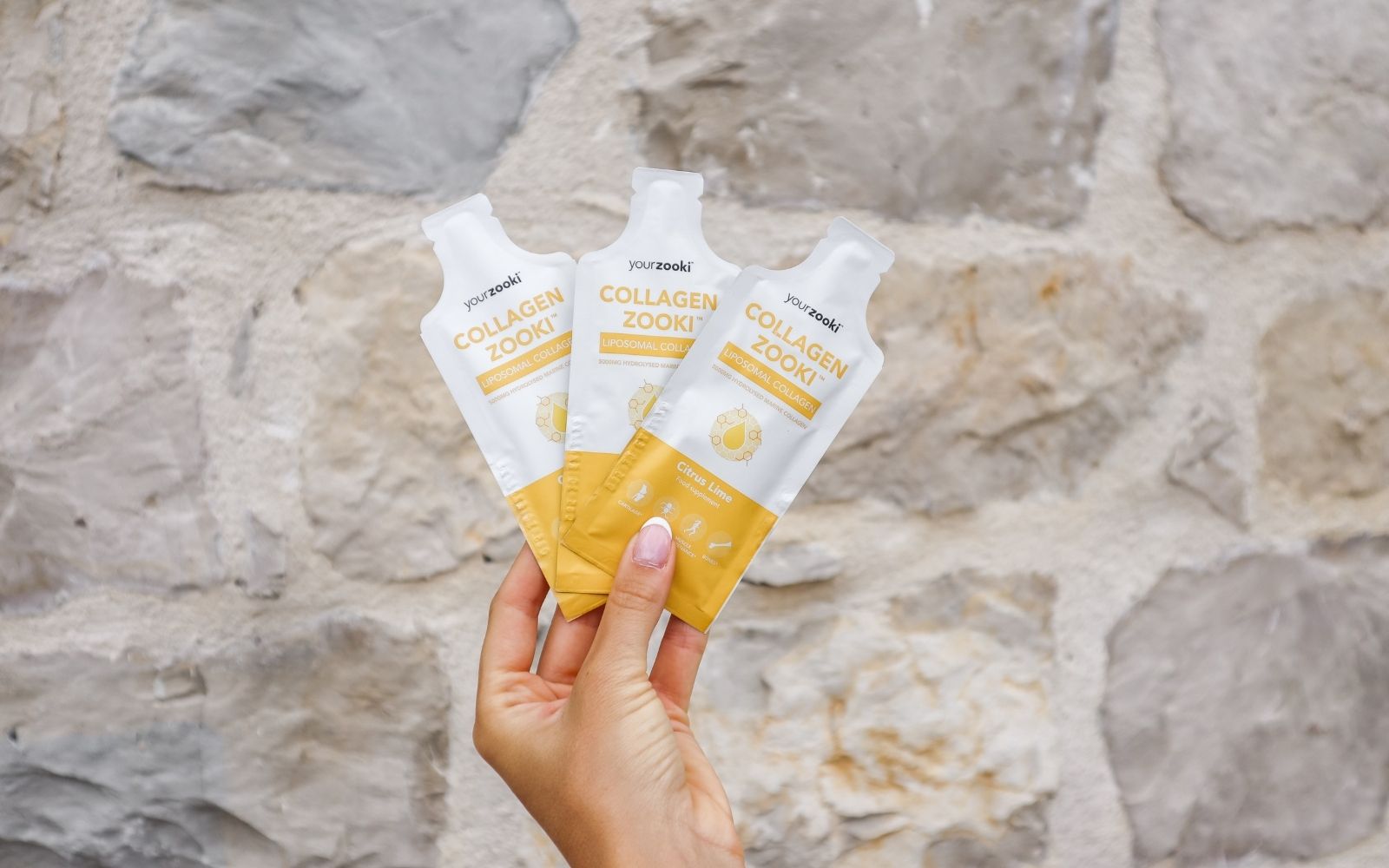You’ve probably been hearing more and more about the various benefits of collagen over the past few years. In fact, it’s one of the most Googled skincare terms of 2020! So it’s no wonder that an increasing number of people are growing curious about collagen. If you too have questions about collagen, you’ve come to the right place - take a look at the most Googled collagen questions answered by expert nutritionist Riya Lakhani.
What is collagen?
Collagen is the general term given for a group of proteins that provides a solid structure to our skin, hair, nails, joints, bones, ligaments and tendons. You can think of collagen as long, fibrous, rope-like cables that make the skin elastic and help us better move, stretch and bend our bodies. It’s no surprise that collagen is the most abundant protein in the body, considering that it's responsible for supporting the body's entire structure!
What are the benefits of collagen?
In addition to providing strength and structure throughout the body, studies suggest that collagen can help prevent premature ageing of the skin, help maintain the health of our joints and relieve joint tension, prevent bone loss, boost muscle mass and support athletic performance.
Can the body make its own collagen?
Yes! Your body can naturally produce its own collagen by breaking down proteins found in food into various amino acids, mainly proline, glycine and hydroxyproline.
If collagen is made naturally in the body, why do we need to supplement with it?
It’s all got to do with age! When we're young, our body can make all the collagen it needs - that explains why our skin looks firmer and why our bones are nice and strong. However, once we hit our 20s, collagen production slows down and decreases by around 10% every 10 years. Even the quality of the collagen that already exists in the body begins to decline! This partly explains why we get wrinkles as we age and why our skin tends to sag and lose elasticity. It's also the reason why our joints feel increasingly stiff and less flexible as we grow older.
What helps build collagen in the body?
You can get the building blocks needed for collagen production by eating a balanced diet rich in protein foods, such as grains, dairy, legumes, nuts, tofu, eggs and chicken. You can also eat plenty of fresh fruits and vegetables high in vitamin C, as these provide the body with a rich amount of antioxidants. These antioxidants help by protecting the body from oxidative stress which is known to break down collagen. You can also take collagen supplements that are usually derived from the bones, skin and connective tissue of animals including fish, pigs and cows. Collagen supplements can directly provide the body with the amino acids, or the building blocks, needed to make more collagen.
Can you get vegan collagen?
No. Unfortunately, you can’t find actual collagen in vegan food or vegan collagen-boosting supplements. However, if you’re vegan, it’s important to eat plenty of vitamin C rich foods as vitamin C is the vital cofactor for the enzymes that regulate collagen production in the body.
What’s the best age to start taking collagen?
As collagen production begins to decline once we hit our 20s, supplementing with collagen, combined with a healthy lifestyle and a balanced diet, can prove to be helpful from this age onwards!
Is collagen good for men?
Absolutely, collagen isn’t only for women - anyone can benefit from collagen!
How long does it take for collagen to work?
This really depends on your collagen levels before taking a collagen supplement. If you have a high collagen status, it might take a short while before you see drastic effects. However, if you have low collagen stores, and you take collagen daily, you’re likely to notice a real difference within a short period.
Can I use collagen instead of protein powder?
Collagen isn’t technically a source of dietary protein, it has a very different protein profile to whey or plant-based protein powders which give it some unique qualities. Collagen contains three amino acids known as glycine, proline and hydroxyproline and these aren’t typically found in protein powders.
Is collagen keto diet-friendly?
As a keto diet is high in fat and low in carbs, collagen (a protein) is considered to be keto-friendly. Here’s a handy tip: if you want to stay in ketosis whilst taking collagen, it might be worth taking some healthy fats, such as coconut oil, along with your collagen supplement.
When’s the best time to take collagen?
It’s best to take collagen when it’s easiest and most convenient for you. As long as you aim to make it part of your daily routine, the time you take it doesn’t really matter.
That’s because there isn’t a great deal of data to tell us what the most optimal time is to take collagen. While some people consider it better to take collagen first thing in the morning on an empty stomach, it doesn’t really matter when you take it as long as you get your daily dose.






Share:
Vitamin D: The most Googled questions answered
Healthy tips for saving time and money in the kitchen